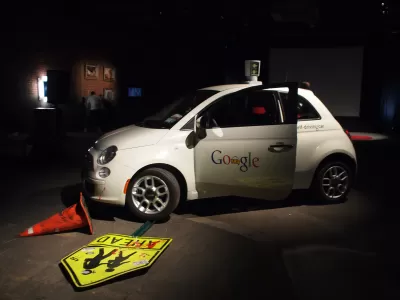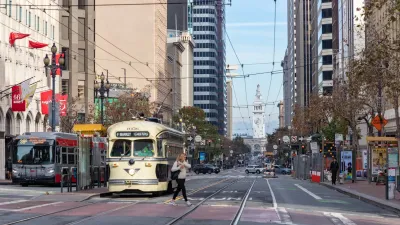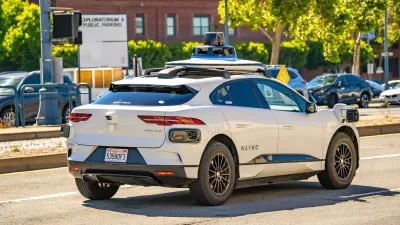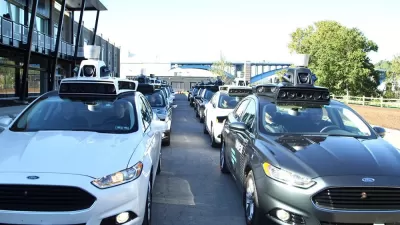No one in the business doubts that autonomous vehicles will have some role to play in the future of transit. But right now, questions abound and answers are still only speculative.

"The autonomous vehicle, some predict, will replace many of today's forms of transportation and radically expand mobility by allowing people, including the young, old, and disabled, to get around without having to walk, without having to know how to drive, and without having to wait for a bus or train."
Systems where autonomous cars are shared "could have significant benefits for cities by reducing the need for parking, encouraging intermodal trips, and expanding mobility by providing lower-cost travel options."
Despite an array of potential benefits, there are also, inevitably, potential problems. In this article, Yonah Freemark reports on conversations with leading figures in the alternative transport industry, including Zipcar co-founder Robin Chase.
Regulation and control is one outstanding issue. Freemark writes, "novel approaches to transportation have relied on tactics that avoid many of the regulations that have been in place for decades, or require them to be altered [...] Is the public sector abandoning its role in favor of crowdsourcing and crowd ratings?"
Freemark investigates related questions, including:
- Will individual ownership of self-driving vehicles exacerbate traffic and harm the environment?
- Can automated taxi services charge rates low enough to compete with buses and trains?
- Are cities ready to subsidize self-driving car ownership among low-income residents?
- Is eliminating the vast majority of transportation jobs worth it?
FULL STORY: Will autonomous cars change the role and value of public transportation?

Planetizen Federal Action Tracker
A weekly monitor of how Trump’s orders and actions are impacting planners and planning in America.

Chicago’s Ghost Rails
Just beneath the surface of the modern city lie the remnants of its expansive early 20th-century streetcar system.

San Antonio and Austin are Fusing Into one Massive Megaregion
The region spanning the two central Texas cities is growing fast, posing challenges for local infrastructure and water supplies.

Since Zion's Shuttles Went Electric “The Smog is Gone”
Visitors to Zion National Park can enjoy the canyon via the nation’s first fully electric park shuttle system.

Trump Distributing DOT Safety Funds at 1/10 Rate of Biden
Funds for Safe Streets and other transportation safety and equity programs are being held up by administrative reviews and conflicts with the Trump administration’s priorities.

German Cities Subsidize Taxis for Women Amid Wave of Violence
Free or low-cost taxi rides can help women navigate cities more safely, but critics say the programs don't address the root causes of violence against women.
Urban Design for Planners 1: Software Tools
This six-course series explores essential urban design concepts using open source software and equips planners with the tools they need to participate fully in the urban design process.
Planning for Universal Design
Learn the tools for implementing Universal Design in planning regulations.
planning NEXT
Appalachian Highlands Housing Partners
Mpact (founded as Rail~Volution)
City of Camden Redevelopment Agency
City of Astoria
City of Portland
City of Laramie





























